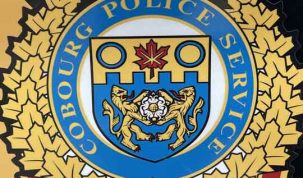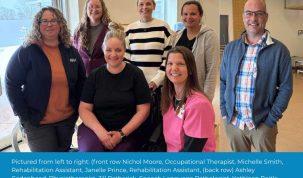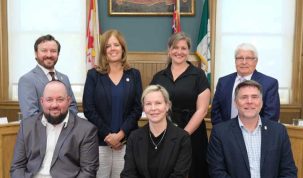Province supporting community safety and addiction recovery by transitioning drug injection sites near schools and child-care centres into HART Hubs
Starting on April 1, 2025, nine drug injection sites located within 200 metres of a school or child-care centre have successfully transitioned into and opened as new Homelessness and Addiction Recovery Treatment (HART) Hubs. These hubs, located in Toronto, Ottawa, Hamilton, Kitchener, Guelph and Thunder Bay, are part of the Ontario government’s almost $550 million investment to support the creation of a total of 28 new HART Hubs across the province to protect the safety of children and families, while improving access to recovery and treatment services for people struggling with addictions. Consistent with HART Hubs’ focus on lasting addictions recovery, provincial funding is contingent on hubs not providing any drug consumption services.
“Communities and families across Ontario have made it clear that drug injection sites near schools and child-care centres make communities unsafe,” said Sylvia Jones, Deputy Premier and Minister of Health. “Our government is proud to announce the successful transition of these nine sites into new Homelessness and Addiction Recovery Treatment Hubs that will keep our communities safe, while giving those struggling with mental health and addictions challenges hope and the tools they need to break the cycle of addiction.”
In response to serious safety concerns raised by communities, families and parents, the nine provincially funded drug injection sites located within 200 metres of a school or child-care centre were given the opportunity to submit a proposal to transition to a HART Hub. All nine sites were approved and, as of April 1, 2025, will be operational. These HART Hubs will receive up to four times more funding than they did as drug injection sites and will over time provide a range of services to meet local needs such as primary care, mental health services including addiction care and support, peer support, social services and employment support.
“By transitioning these sites into HART Hubs, we’re ensuring that people struggling with addiction get the treatment and support they need to recover,” said Vijay Thanigasalam, Associate Minister of Mental Health and Addictions. “At the same time, we’re making sure our schools and child-care centres remain safe for children and families. These new hubs reflect our government’s commitment to helping people build healthier lives while also ensuring the safety of our communities.”
HART Hubs will reflect regional priorities by connecting people with complex needs to comprehensive mental health support and addictions care. HART Hubs will also add an estimated 560 highly supportive housing units, in addition to addiction recovery and treatment beds, which will help people transition to more stable long-term housing.
In addition to the nine sites that successfully transitioned into HART Hubs, 19 new HART Hubs were chosen as a result of a province-wide call for proposals. The government will continue to work with the remaining HART Hubs to bring new, safe and comprehensive mental health, social and addiction services, as well as supportive housing units, to communities across the province as soon as possible.
Through Your Health: A Plan for Connected and Convenient Care and building on the Roadmap to Wellness, the province is taking action to connect individuals to integrated mental health and addictions services, where and when they need it.
Quick Facts
- The creation of HART Hubs is being done in partnership with the Ministry of Health, the Ministry of Municipal Affairs and Housing, the Ministry of Children, Community and Social Services and the Ministry of Labour, Immigration, Training and Skills Development.
- With a focus on treatment and recovery, HART Hubs will not offer so-called safer supply, supervised drug consumption or needle exchange programs.
- The Community Care and Recovery Act, 2024, prohibits municipalities and local boards from applying to Health Canada for an exemption for the decriminalization of drugs. The Act also prohibits municipalities and local boards from applying to Health Canada for funding or entering into an agreement with Health Canada in respect to safer supply services or applying for an exemption or renewal of an exemption to operate a supervised consumption site, without prior provincial approval.
- Through the Roadmap to Wellness, Ontario is investing $3.8 billion over 10 years to fill gaps in the mental health and addictions (MHA) care continuum, create new services and expand programs, including:
- $124 million over the next three years as part of Budget 2024 to sustain more than 380 addiction recovery beds and models of treatment like mobile mental health clinics.
- $152 million over the next three years for supportive housing to assist individuals facing unstable housing conditions and experiencing mental health and addictions challenges.
- More than $22 million over four years to create 10 new Youth Wellness Hubs that the government is adding to the network of 22 Hubs already opened since 2020, bringing the total number of Youth Wellness Hubs to 32 across the province.
- More than $650 million in annual funding for the Homelessness Prevention Program and $41.8 million for the Indigenous Supportive House Program, which the government increased by $202 million annually in the 2023 provincial budget.
- Up to $16 million to support Police-Partnered Mobile Crisis Response Teams in over 50 communities across the province so that health care professionals can attend crisis situations.
- Over $60 million in annual funding to support Indigenous-led mental health, addictions and well-being supports that will help individuals, families and communities heal from the impacts of intergenerational trauma and colonization through culturally safe and responsive programs and services that are designed and delivered by and for Indigenous people.























